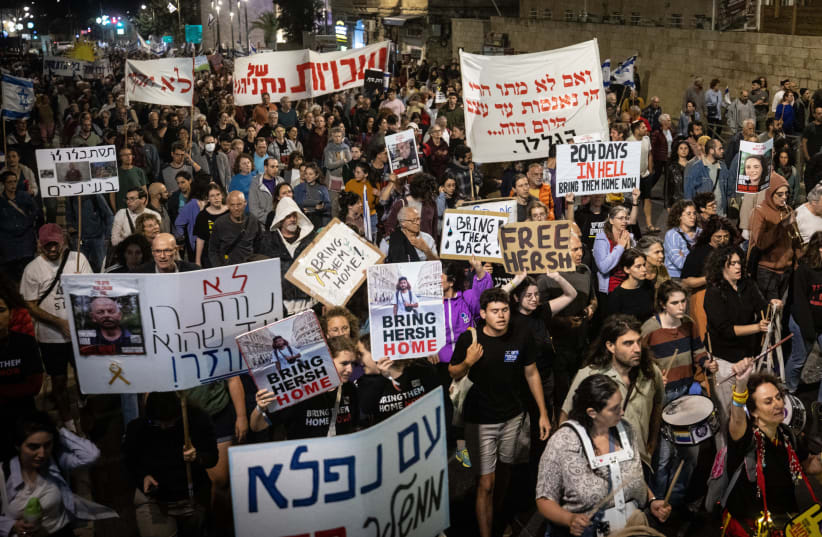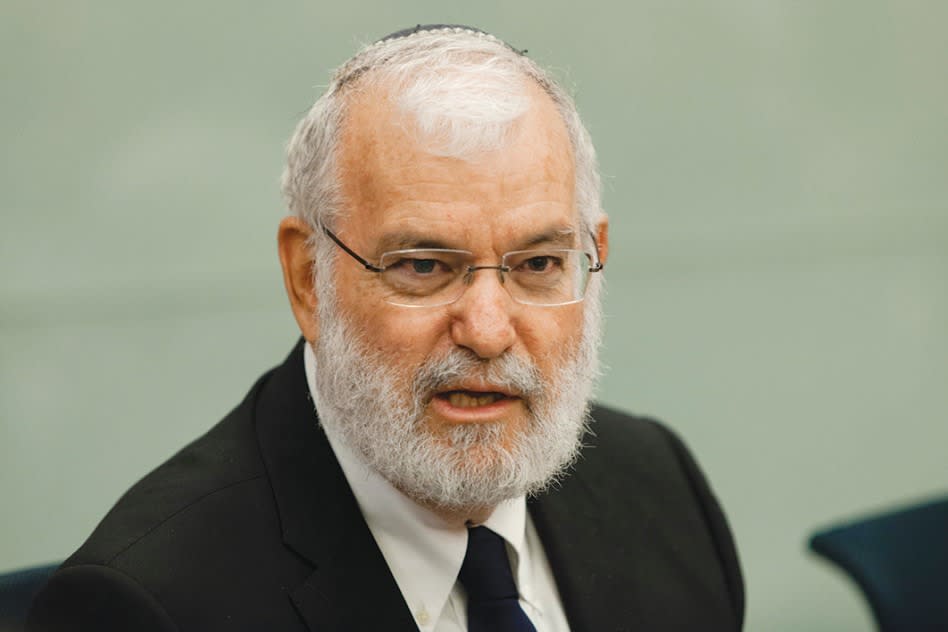Ya'akov Amidror, a former major general and national security adviser of Israel spoke with Udi Segal and his team on 103FM radio, addressing Israel's decision to follow through with either a prisoner exchange deal or entering into a ceasefire, as well as the ultimatum set by National Security Minister Itamar Ben-Gvir to Prime Minister Benjamin Netanyahu.
Amidror stated, "Ministers have always said that there is a connection between what the government decides and what they do in the government. I would say that it is even legitimate because a minister is elected to promote certain paths. It is important to remember that even if the decision was made against the minister's opinion, he is still part of the government and therefore responsible for it, at least ethically.
"This issue is not new. The fact that people tie specific actions to their stay in the government is legitimate. The issue is how it is done, in what language, and how the dialogue with the prime minister is conducted. This touches on the political freedom of action that the prime minister has, how many alternatives he has, and how much pressure to the corner will lead to the government falling apart. I look at the demands made during elections, and no side can form a government.
"Naturally, ministers use their political power to advance positions. The issue is that matters are being conducted with childishness and arrogance, and it is not the action itself that should be criticized, but the way it is done."
Amidror added, "It is clear that if there is a deal, part of the deal will be a postponement of the invasion of Rafah. Why is that? This is already a matter of negotiation and the reality of the battle, but it is clear that it will be the immediate result. After a ceasefire, 40 days after signing the deal, will they really return to Rafah? That is the question.
"There is no doubt that international pressure not to enter Rafah will increase significantly. Will the 40 days affect the ability of the IDF to enter Rafah? Probably not. Hamas will be better prepared; maybe the IDF will pay in casualties for the postponement, but the postponement will not create a situation where the IDF will not be able to enter Rafah. It is also clear that international pressure will increase," Amidror added.
Is there a real chance for a change on the Middle East map?
Amidror continued, "When talking about the Middle East in the future, it's impossible to say there's no chance. But there is a massive strategic flaw because this plan assumes that Hamas and the military force of Hamas, will not be eliminated completely from Gaza. It's a negative thing that we need to show the world that those who commit acts like Hamas have will have their military force eliminated. It should be obvious. The entire process will depend on the goodwill of Hamas, but Hamas will only be strengthened after this.
"Additionally, it's hard for me to see enthusiastic support or even mere support from Israel for a Palestinian state that the Americans cannot guarantee will not be controlled by Hamas. The American plans are very tempting, but they carry such great risks for the State of Israel that one must proceed with caution, if at all. Selling the idea of a Palestinian state to the citizens of Israel will be difficult. It's a reasonable possibility that Ramallah will be controlled by Hamas."
Amidror referred to the normalization of prospects with Saudi Arabia, "There is no doubt that for the State of Israel, an agreement with Saudi Arabia is a real strategic change. But between the days when we dealt with this issue and Netanyahu led major efforts, October 7 happened. The Middle East needs to come out of this war with a very clear fingerprint - there are red lines for the State of Israel. Is it right to promote the big American plan? Yes, but under one condition: that Hamas pays the price for its non-existence as a military force in the Gaza Strip. How do we connect these things? It is an interesting question whether it is possible and how."
Assistance in preparing the article: Shani Romano 103FM radio

